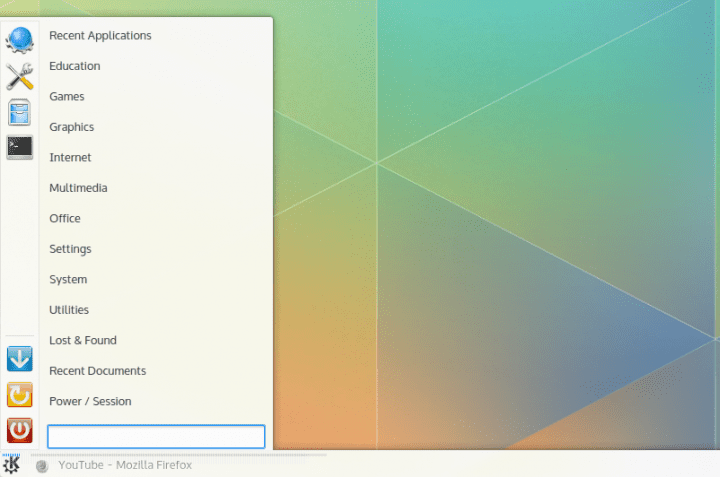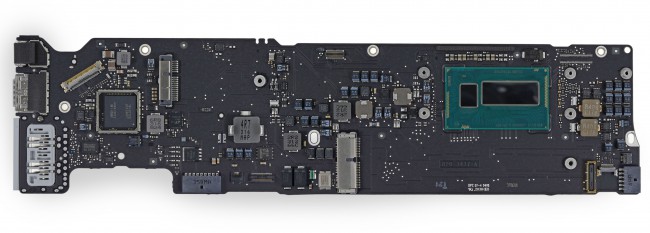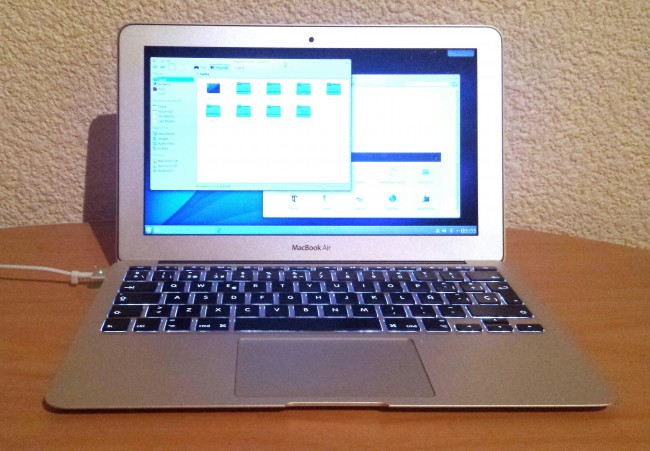Thoughts on main menus
July 29th, 2014 by Luis Augusto Fretes Cuevas
The first thing a user is expected to interact with, at least in any operating system with a graphical interface, is the main menu. Yet, outside of touch devices, there’s very little consistency across platforms. This suggests we haven’t yet figured out how to design a main menu for PCs in a way that satisfies most. Why is it so hard? What’s a main menu for? Before designing anything we got to be sure what is purpose is. The purpose of a main menu may seem obvious: to launch applications. This, however, is too simplistic. A slightly better way of… Continue Reading
How light is Netrunner?
March 29th, 2014 by Luis Augusto Fretes Cuevas
Minimum and usable requirements are not synonyms. Recommended specifications should not be confused with usability requirements, recommended specs are are more demanding (they represent the ideal set of components). A usability requirement is the condition in which the system not only installs and more or less works, but can also be used reasonably by other human beings. According to the official documentation, the minimum requirements to run Netrunner 13.12 are: CPU 1.6-GHz Intel Atom N270 RAM 1GB Hard Drive Size 10GB Graphics Card Intel GMA 945 Video Memory 128MB I decided to put this to test. The machine I used is… Continue Reading
Is Haswell the beginning of PC’s counter-attack?
November 23rd, 2013 by Luis Augusto Fretes Cuevas
A bit of bakground Let’s turn back the clock to simpler times, when there were laptops and BlackBerries, most PC OEMs were making a ton of money from their Netbook division and many rumours of an impeding Netbook from Apple were at the order of the day. Apple shut down every rumor at the time, as Steve Jobs once said that he didn’t know how to build a computer for less than $1,000 that didn’t suck. The first Macbook Air was released on January 2008: Instead of introducing its own Netbook Apple look the other way and made an incredibly expensive… Continue Reading
Review: Macbook Air 11.6 (mid-2013) for Linux users.
October 31st, 2013 by Luis Augusto Fretes Cuevas
Apple’s ubiquitous Macbook Air line has become synonymous with lightweight, portable and yet relatively powerful computer, the latest version is Apple’s attempt at making it a synonym of all day battery life. Thanks to Intel’s amazing new Haswell architecture achieving over 9 hours of battery life is feasible on laptops. The 11.6″ Macbook Air is in my opinion a very interesting proposition: Is not a lot bigger than an iPad, but is way more functional, has a proper keyboard, and the battery life is actually better than it is on the tablets if you limit yourself to iPad-like tasks. The… Continue Reading
The Ubuntu Edge: Can Canonical succeed?
July 29th, 2013 by Luis Augusto Fretes Cuevas
I’m sure by now all readers know about Canonical’s rather ambitious goal of financing the creation of its own smartphone through crowdfunding. Mark Shuttleworth’s company isn’t playing around either, he doesn’t want just to build a smartphone, he wants to buildthe smartphone meant only for the biggest tech enthusiast out there, using technology that’s cost prohibitive on the consumer space. In order to do manufacture their dreams they’ve estimated they need 32,000,000 dollars. That’s not a small number, in fact, is big enough to break all crowdfunding campaigns to date. Meeting their goal obviously requires a bunch of things to align,… Continue Reading
Linux and the Chromebook Pixel
March 4th, 2013 by Luis Augusto Fretes Cuevas
Google recently released its first Google laptop. It took the world by surprise, while there was a leak a few days before the device was still far from confirmed and even further from expected. ChromeOS is used in many low-end laptops, Chromebooks have pretty much become the successors of netbooks. However, the Pixel is different: instead of being akin to netbooks it’s more like a high-end ultrabook, a new category of its own. I’ve argued before that Linux has yet to have a significant impact in the desktop operating system market not because it traces behind in any significant way technologically… Continue Reading
Linux and the Go-To-Market strategy
January 31st, 2013 by Luis Augusto Fretes Cuevas
Linux has yet to achieve a significant piece of the PC market, unlike what it has done in the mobile space. So the question is why doesn’t it happen in the PC industry? Some people argue that Linux is too hard, or that it doesn’t have all the apps people need or all the games or what have you, they will quickly point out that there’s no Photoshop, or Premiere, or Skyrim. But is that true? Is that the reason? That seems unlikely considering how small is the percentage of users that actually care about any of those apps, for… Continue Reading
Open WebOS and the Power of Qt
January 6th, 2013 by Admin
Qt technology gets used in more and more instances, as the Ubuntu Phone, Jolla and Open WebOS, which can be seen running on a Nexus 7 here:








